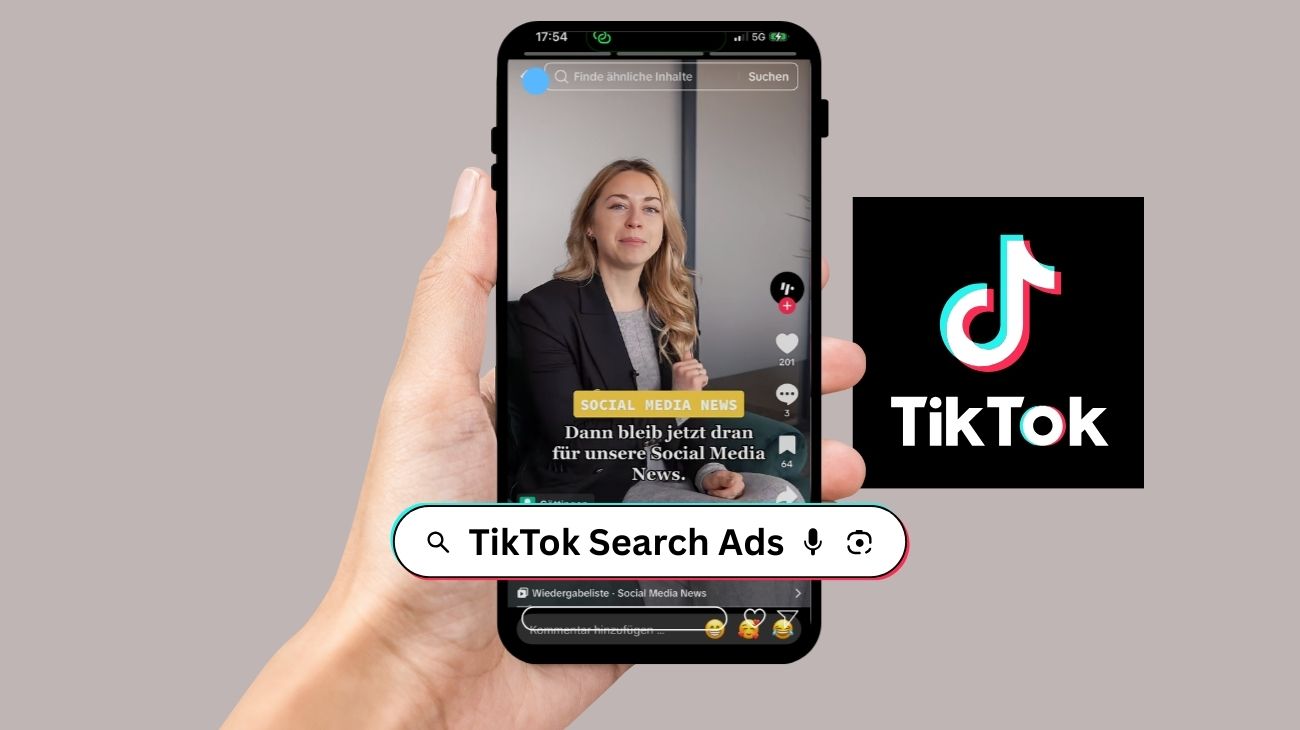How to use Tap Tags on Instagram!

Use Tap Tags correctly – without problems with the law!
The so-called tap tags on Instagram have long been the subject of public discourse. Now the use of tap tags is even being questioned in court. Influencers in particular are under fire. The reason? They are accused of surreptitious advertising, even though they have merely linked to another Instagram account on their picture. When using tap tags, there are a few things you should be aware of. What all belongs to Tap Tags and why their use became such a controversial topic, we explain below.
For reasons of better readability, we have decided on our blog to use the generic masculine for personal names. This is done completely value-free and has only editorial reasons. All forms of language naturally apply to all genders.
What are Tap Tags anyway?
Tap tags are clickable areas or tags within posted images on Instagram. These link tags appear by tapping on image. When you click on the link, you are automatically redirected to another Instagram account. Especially for influencers, the linked accounts are often other influencers or brand profiles, for example of fashion companies, hotels or other businesses.
Why is the use of tap tags risky?
Various influencers have already found themselves in court for the use of tap tags. The plaintiff in most of the proceedings is the “Verband Sozialer Wettbewerb” (VSW). Its task is to protect the commercial interests of its members and to prosecute violations of fair competition law. In 2017 and 2018, the association issued warnings to numerous influencers, including our exclusive blogger Luisa, for alleged surreptitious advertising on their Instagram accounts. Without additional labeling, it was not apparent to users whether a company’s link was advertising. Since then, the industry has been talking about “Abmahngate”.
However, the courts disagree on whether tap tags qualify as surreptitious advertising. The Higher Regional Court of Braunschweig ruled that it is not clear enough for users from the context whether it is advertising or not. Accordingly, influencers would always have to label posts that contain tap tags as advertising. The Munich Higher Regional Court and the Hamburg Higher Regional Court, on the other hand, decided that a post does not have to be explicitly marked as advertising if it is obvious to the user that it contains advertising.
Are tap tags surreptitious advertising?
According to the definition, surreptitious advertising occurs when editorial texts and advertising are not clearly distinguished from each other. It therefore depends on whether it is clear to the viewer that he is now seeing advertising. Tap tags are a gray area because, according to the plaintiff, the influencer, even without having received anything in return, may hope that the post will lead to a future cooperation. In fact, however, tap tags are also used to network or merely to communicate where, for example, certain items of clothing that he wears can be found, without commercial intent.
A government bill dated January 20, 2021 is now intended to resolve this conflict. The existing paragraph (Section 5a (6)) of the Unfair Competition Act (UWG) could be replaced by a new paragraph 4 from 2022. There would then be no surreptitious advertising if influencers act in favor of a company but receive no remuneration or similar consideration.
Conclusion
The negotiations against the influencers, who were prosecuted by VSW in the context of the “Abmahngate”, are still partly not completed. Luisa also continues to fight for fair treatment of influencers. Following her BGH hearing on the topic of advertising labeling on Instagram, she was even allowed to report on her experiences on SAT.1. The report can be viewed in the SAT.1 media library.
Since 09 September 2021, the BGH has now ruled: Influencers may from now on use tap tags without labeling them as advertising if there has been no consideration from the tagged company. Despite everything, it must then be clear from the post that it is an editorial and not an advertising post.
Our take? Finally more clarity for influencers. On the way towards increasing authenticity and professionalizing the influencer marketing industry, we see the now legally binding ruling as a major step forward for all influencers, who will now hopefully no longer have to struggle with uncertainty every time they post. Because there is exactly one thing that makes influencers so popular and so successful: they should recommend products or brands because they really like them. And if they even do this for nothing in return, they also strengthen the bond with their own community.









 Sign up
Sign up 